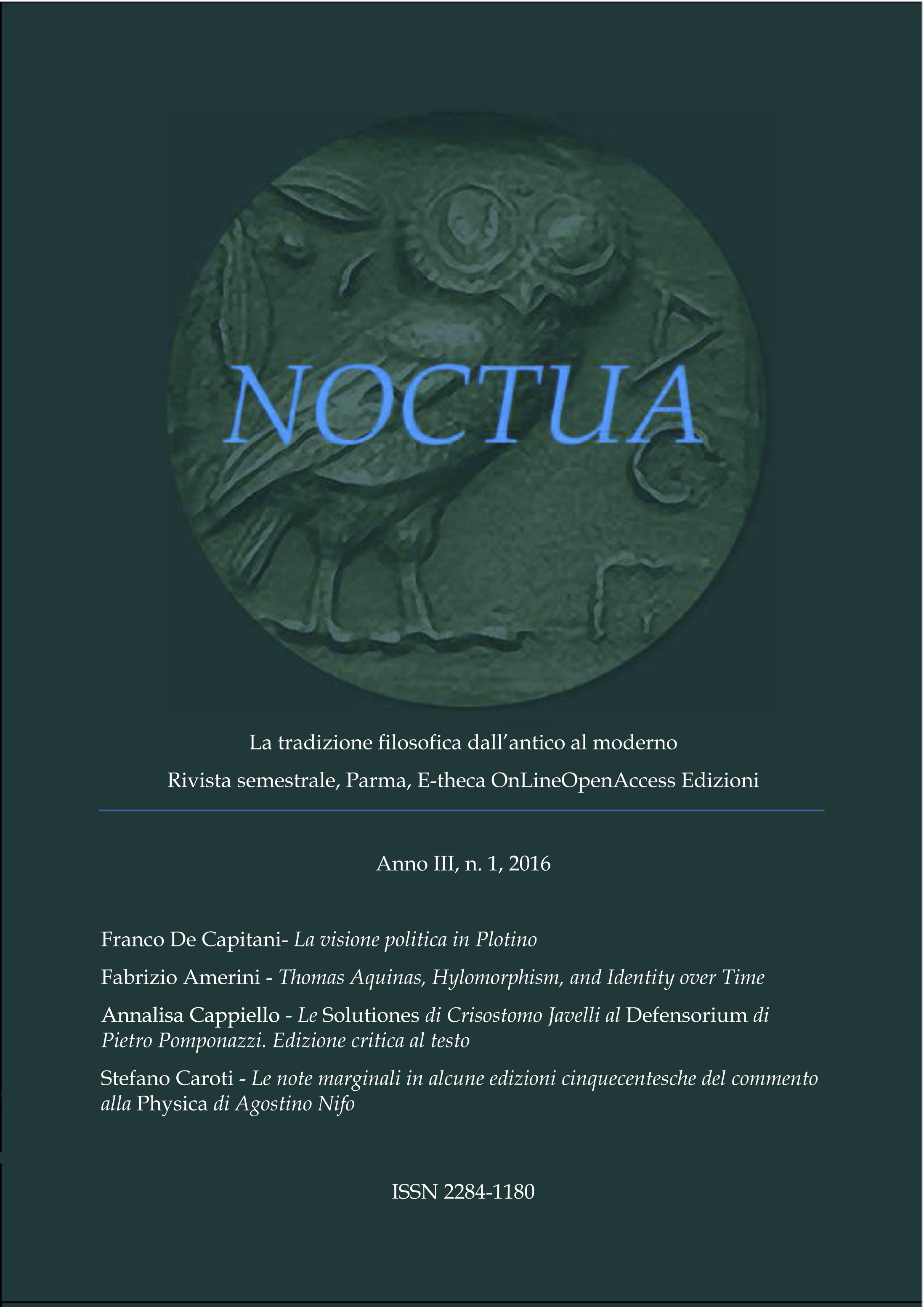Thomas Aquinas, Hylomorphism, and Identity Over Time
DOI:
https://doi.org/10.14640/NoctuaIII2Parole chiave:
Identity, form, matter, subject, Thomas AquinasAbstract
Identity-Over-Time has been a favorite subject in the literature concerning Thomas Aquinas. Aquinas addresses this issue in many discussions, including especially the identity of material things and artifacts, the identity of the human soul after the corruption of body, the identity of the body of Christ in the three days from his death to his resurrection and the identity of the resurrected human body at the end of time. All these discussions have a point in common: they lead Aquinas to raise the question of Identity-Over-Time with respect to things that fully exist in act, i.e., things that possess an identity of their own and change some of their parts or properties over time while continuing to be what they are. In this article, I investigate this topic from a different angle, considering the case of the trans-temporal identity of things that do not yet have an identity of their own or fully exist in act. The case at stake is that of the identity of the human embryo through the process of human generation. It is a puzzle that Aquinas seems to have some difficulties to solving, given his account of human embryogenesis as a process that alternates generations and corruptions of the subject. At the same time, though, Aquinas does not want to renounce the idea that the subject of generation must be numerically one and the same throughout all the process. In order to solve this puzzle, Aquinas seems to suggest distinguishing the identity of the subject from the identity of its matter and/or form. At given conditions, a thing can even change its matter and form while continuing to be the same thing in number. Specifically, the numerical identity of the subject of generation is justified by the identity entailed by the metaphysical notions of potency and act.
##submission.downloads##
Pubblicato
Fascicolo
Sezione
Licenza
Noctua pubblica contributi Diamond Open Access secondo i termini della licenza CC BY / Noctua publishes Diamond Open Access contributions under the terms of the CC BY license.







